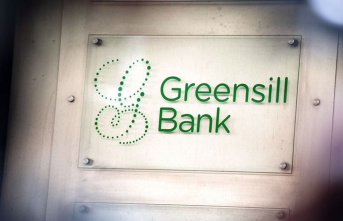In view of lower purchase premiums in 2023, car importers warn of major risks for the continued success of electromobility.
"Due to the sharp rise in electricity prices, the operation of electric vehicles is becoming significantly more expensive," said Reinhard Zirpel, President of the Association of International Motor Vehicle Manufacturers (VDIK). "The reduction in government purchase subsidies for electric vehicles is therefore now at the worst possible time. With rising electricity prices and falling subsidies, e-vehicles are in danger of becoming less attractive overall," says Zirpel.
Plug-in hybrids, which use a combustion engine in addition to an electric motor, will no longer be funded from next year. The subsidy premiums for battery and fuel cell cars are falling. From 2023, buyers of fully electric cars can receive a maximum of 4,500 euros from the state instead of 6,000 euros if their car is on the sales list for less than 40,000 euros net. For more expensive vehicles up to a net list price of 65,000 euros, there are still 3,000 euros instead of the previous 5,000 euros. In 2024, the subsidy premiums will continue to fall.
points of contention
The associations and experts disagree about the concrete consequences for the sales figures. According to the Federal Motor Transport Authority (KBA), almost 660,000 electric vehicles were newly registered between January and November - an increase of 12.4 percent compared to the same period last year. These included just over 366,000 battery-only vehicles (up 22.7 percent).
For 2023, the VDIK expects a 12 percent slump in plug-in hybrids and at the same time an increase in battery electric cars of 22 percent to 500,000 units sold. The car expert Ferdinand Dudenhöffer, on the other hand, predicted a significant slump in sales of hybrids (94,000) and stagnation in sales of battery vehicles (390,000) at the beginning of December.
According to preliminary figures from the responsible Federal Office for Economic Affairs and Export Control, around 3.2 billion euros in funding went to buyers of electric vehicles in 2022 - a record. Since the introduction of the first electric bonuses in 2016, around 1.64 million cars have been funded. A run on the subsidy pots began in mid-2020, when the purchase bonus that had been valid until then was increased by an "innovation bonus".
"The transformation to alternative drives makes individual mobility more expensive for many people. Industry and politics must therefore work together to ensure that mobility remains affordable even in the age of alternative drives," said VDIK President Zirpel. "The federal government should use the coming year to rebalance the financial framework for alternative drives."
According to its own statements, the VDIK represents 40 brands from 13 different countries with a market share of around 40 percent in car sales.








